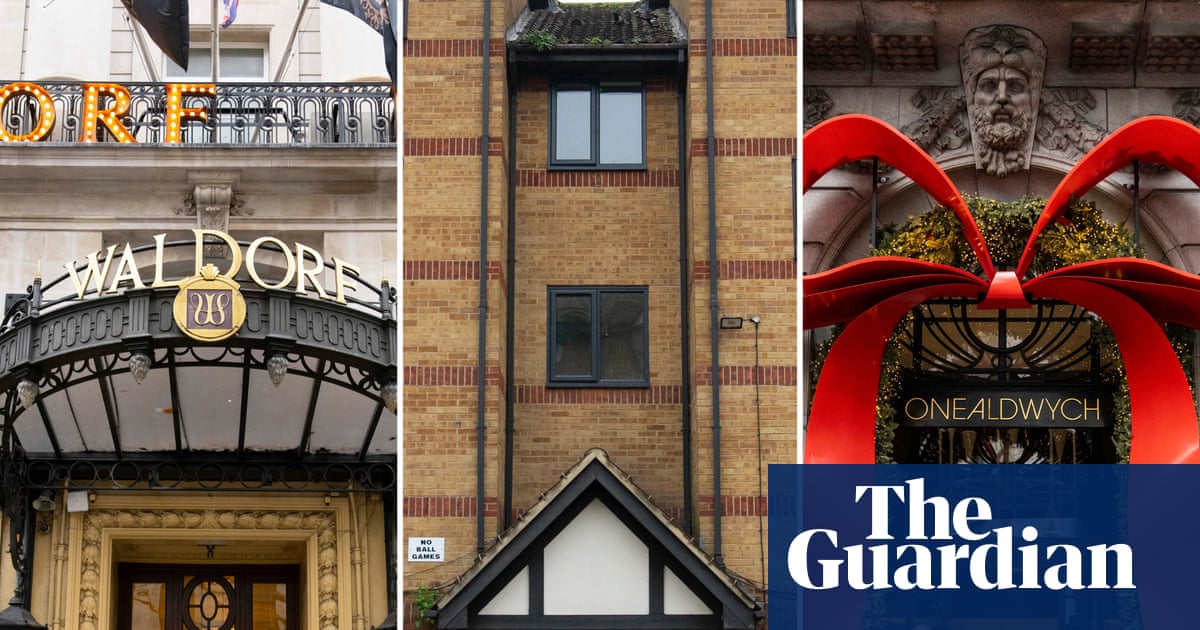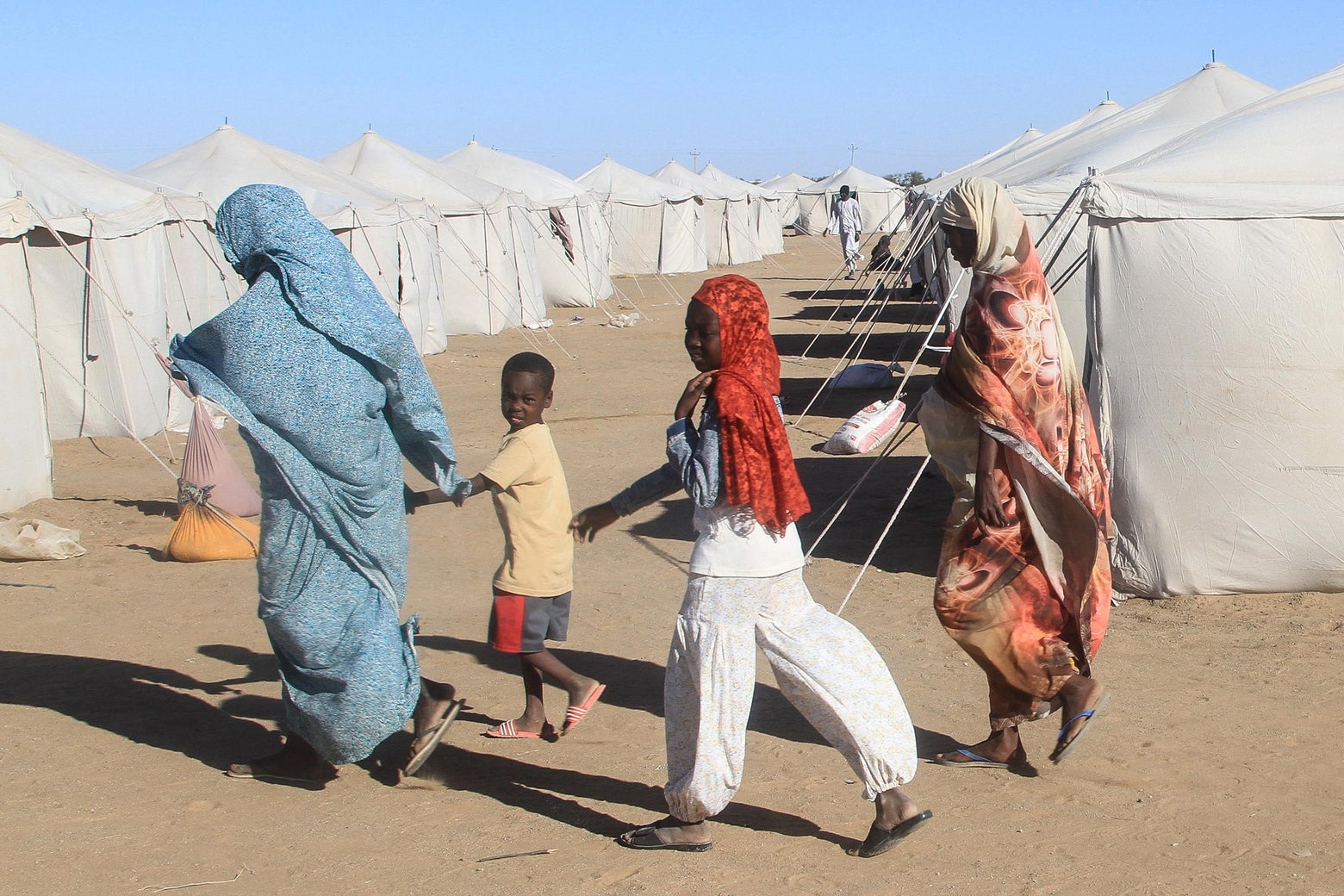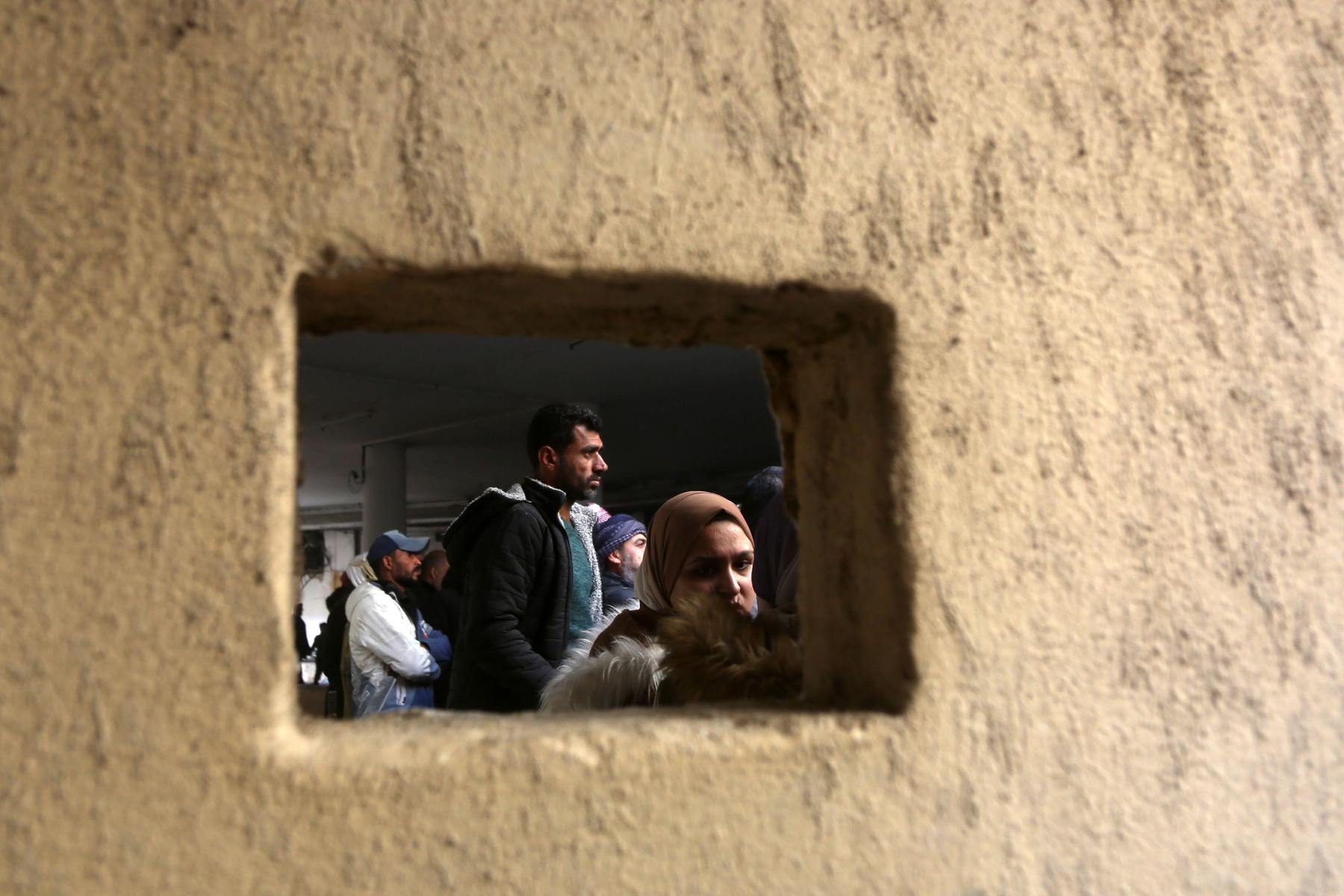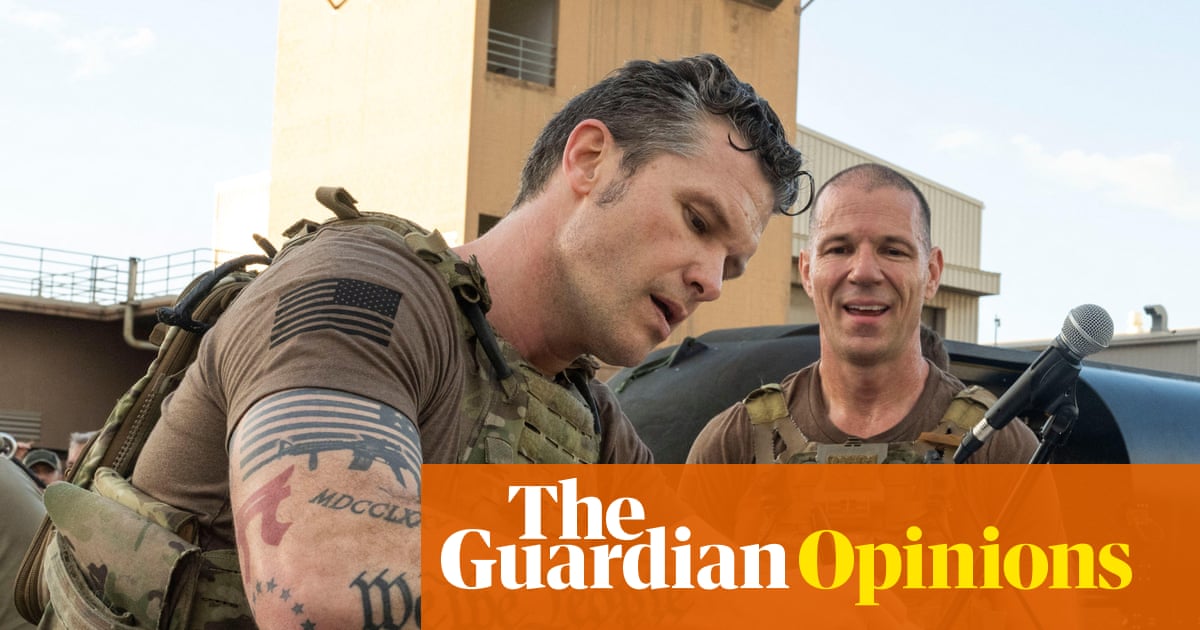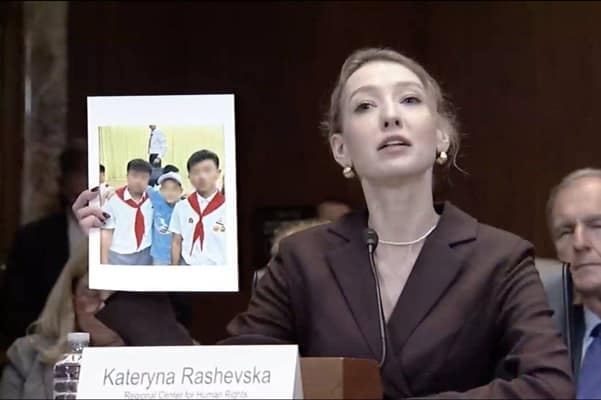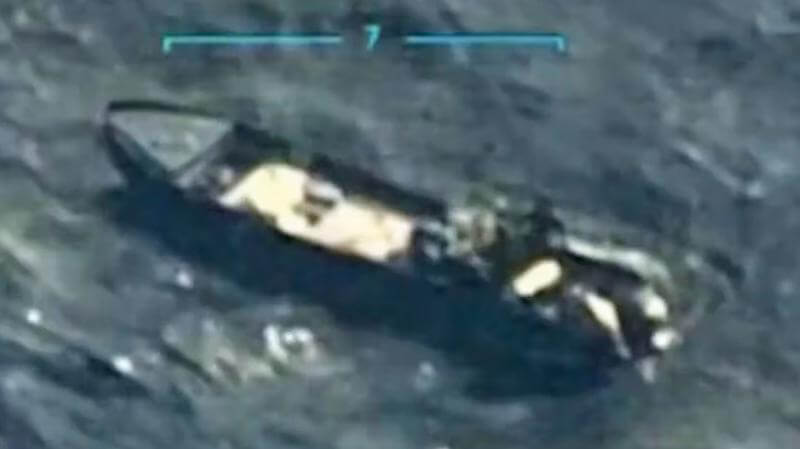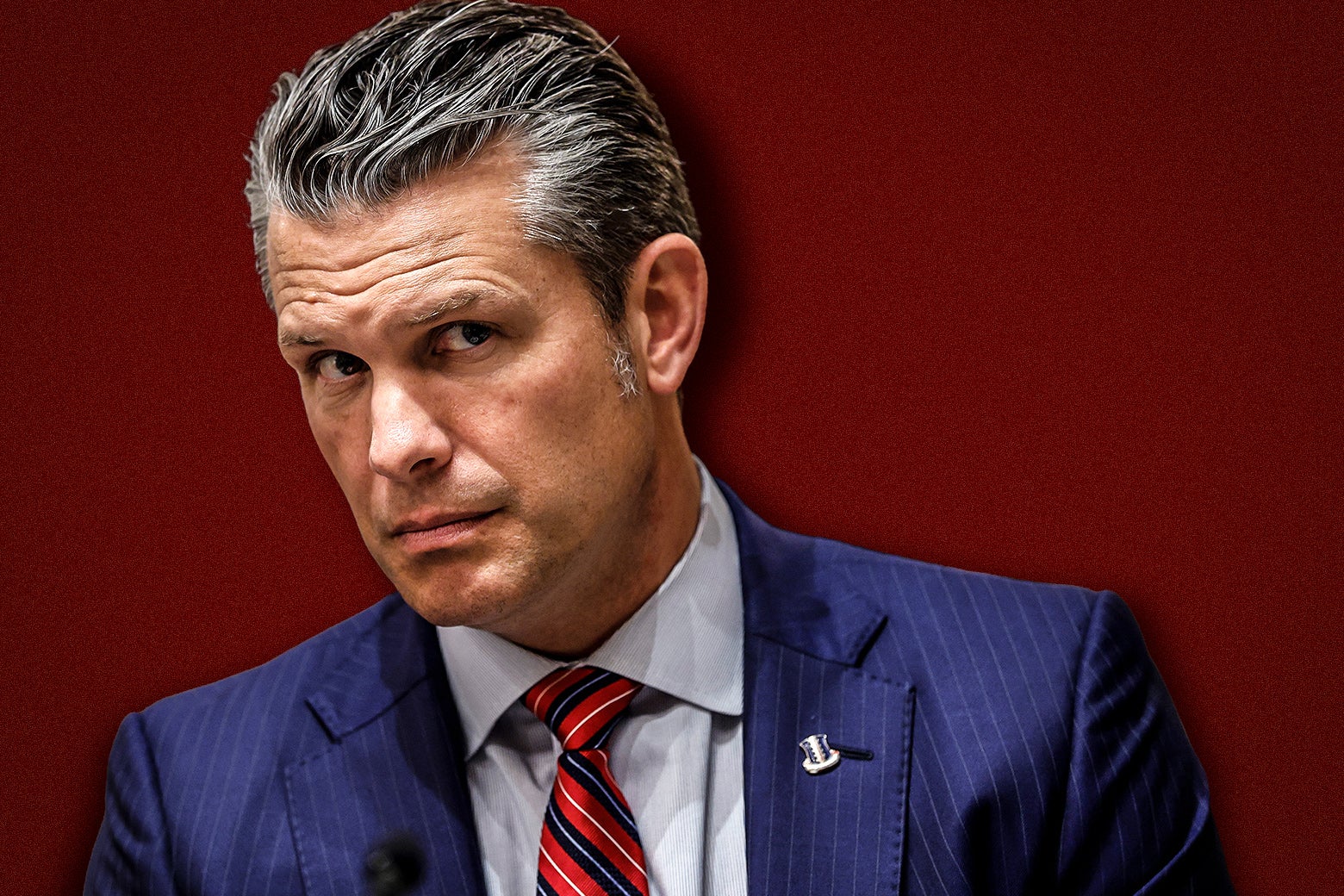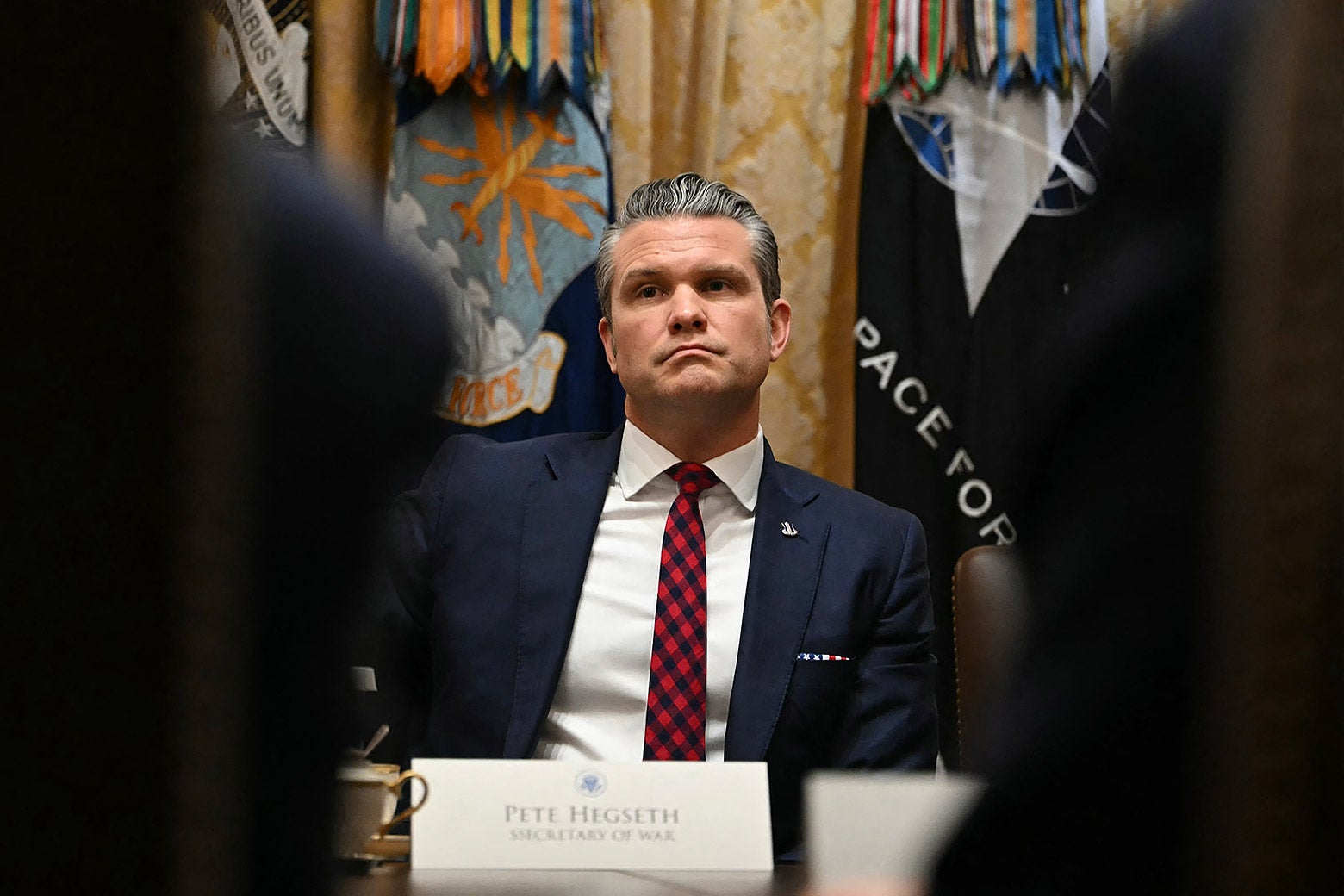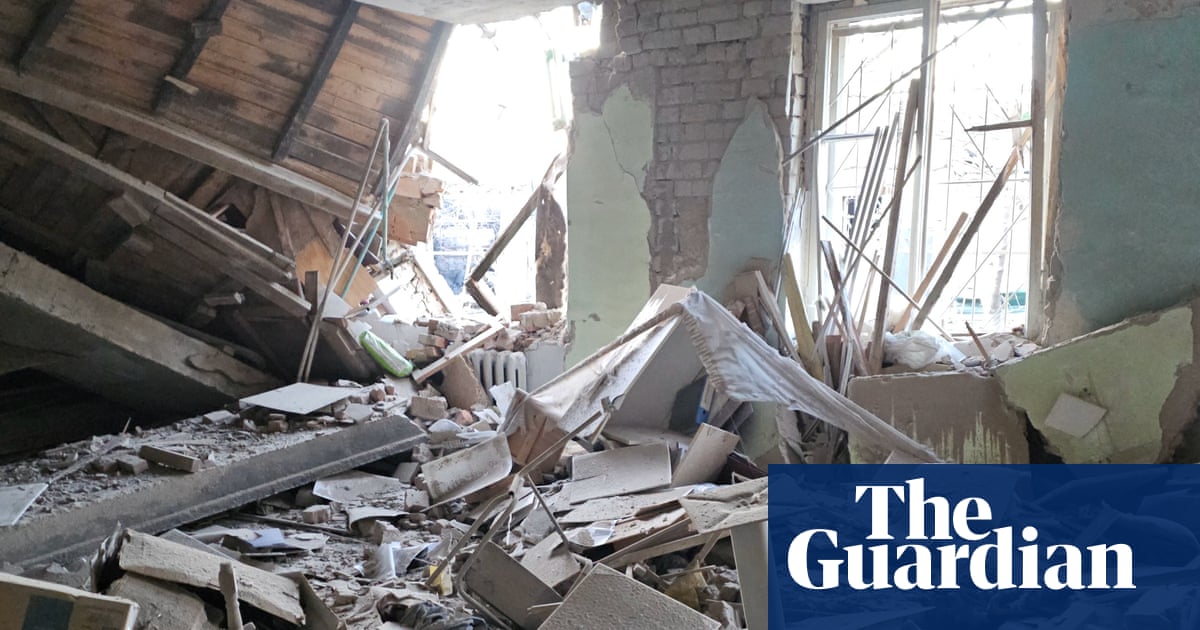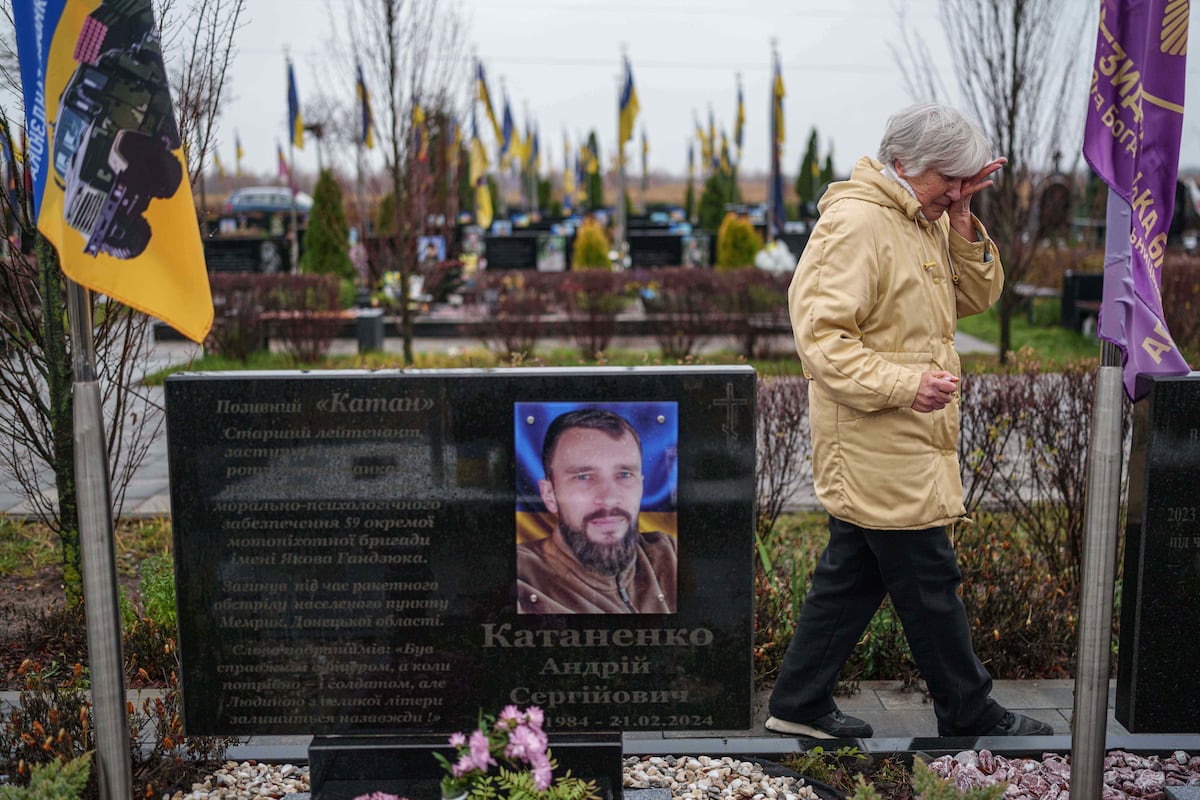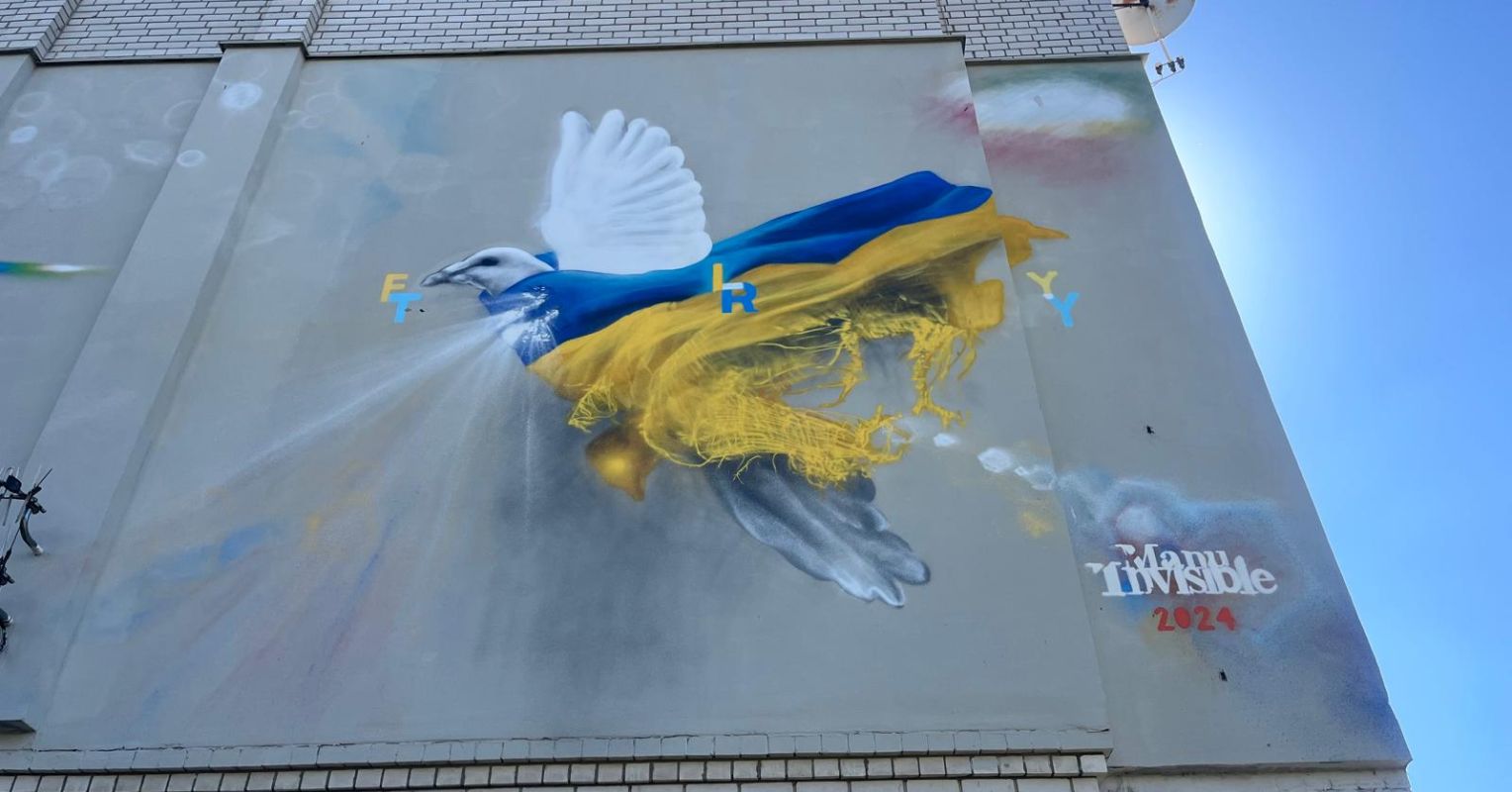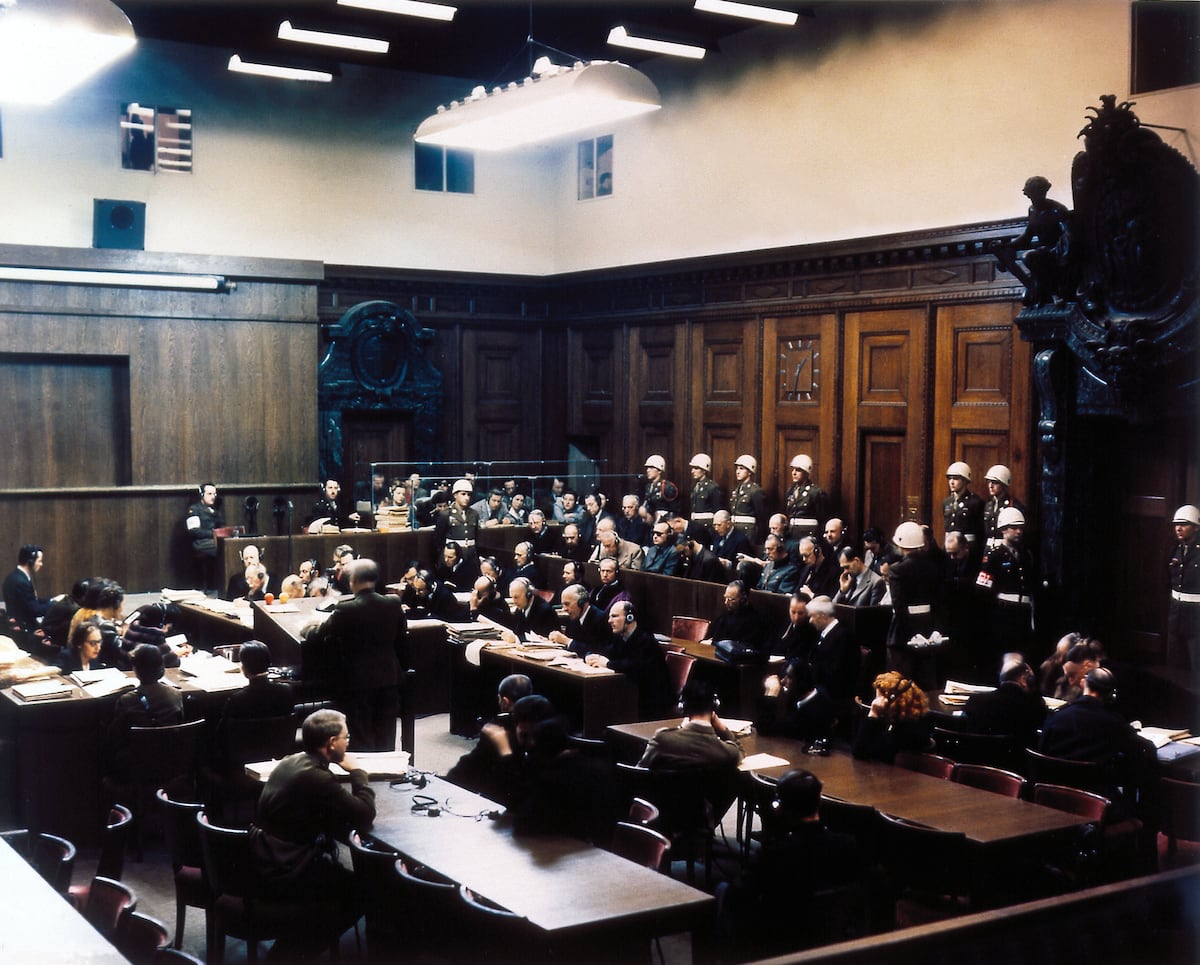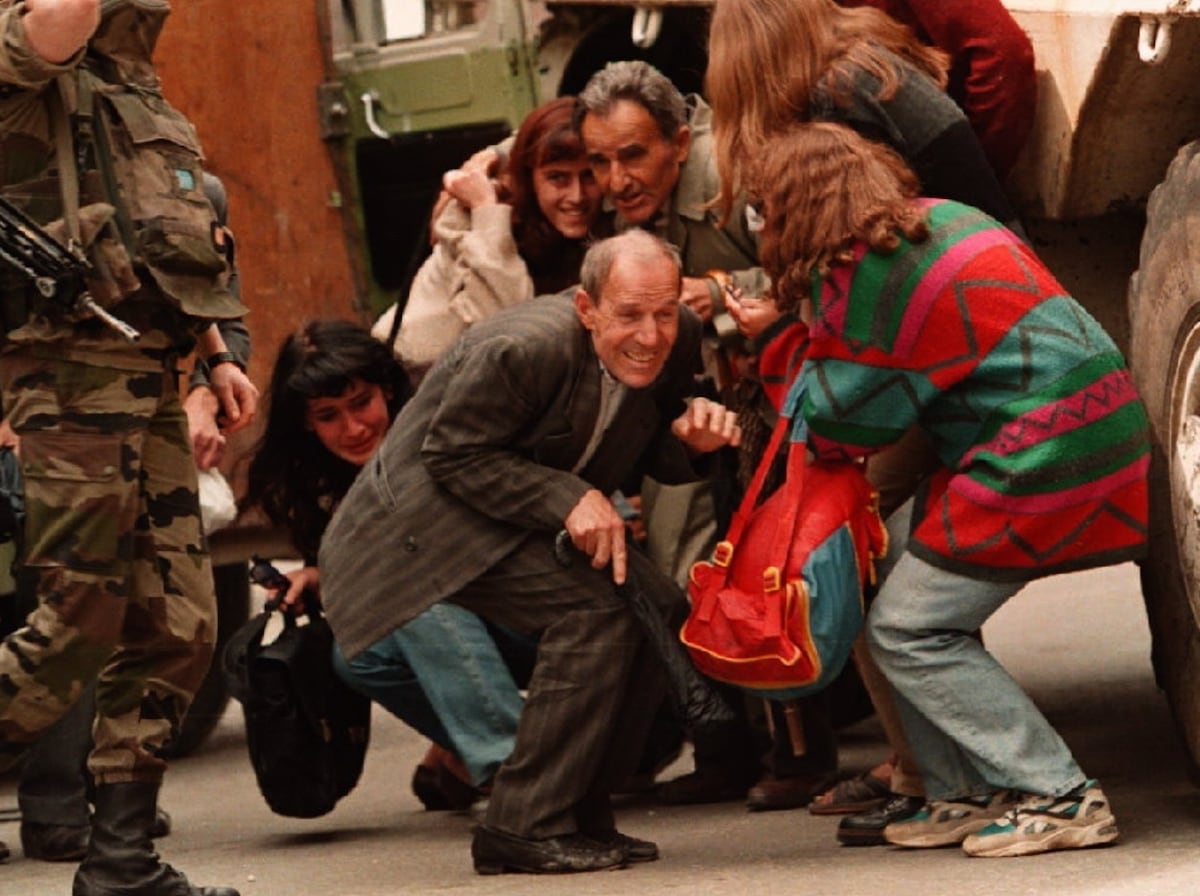#war-crimes
#war-crimes
[ follow ]
#sudan #rsf #darfur #pete-hegseth #international-criminal-court #nuremberg-trials #international-law
fromThe Cipher Brief
1 week agoRussia is Targeting Civilians in Ukraine
Russia has intensified attacks on Ukraine's power grid, generating facilities, and heating infrastructure, in efforts to disrupt electricity, heat, and water services - especially in winter. Clearly, Russia is targeting Ukraine's civilian population. The mayor of Kyiv, Vitali Klitschko, recently told that Kyiv, with a population of 3.6 million people, has only about half the electricity that it needs as
Miscellaneous
World news
fromwww.theguardian.com
2 weeks agoColombian ex-paramilitary leader jailed for crimes against Indigenous groups
Salvatore Mancuso received a 40-year prison sentence for 117 crimes against Indigenous communities in La Guajira, potentially reducible to eight years with victim-centered collaboration.
Miscellaneous
fromLondon Business News | Londonlovesbusiness.com
3 weeks agoHealey vows he would 'take Putin into custody for war crimes' - London Business News | Londonlovesbusiness.com
British Defence Secretary John Healey would take Vladimir Putin into custody to hold him accountable for war crimes in Ukraine.
fromPsychology Today
1 month agoWas 2025 the World's Worst Year Ever?
Writing on New Year's Day 2026, I feel the need to try to make some sense of the worst year of my 73-year life. I don't mean worse personally. My close family and I live in the relative safety and affluence of London, England, and we are all healthy and have fulfilling jobs. I mean, worst in the global sense.
World politics
fromenglish.elpais.com
1 month agoNorth Korea, the latest stage in the Russian indoctrination of Ukrainian children
Both were born in a free Ukraine, but have lived for more than a decade in territory occupied by the Russian army. Last week, Ukrainian lawyer and international law expert Katerina Rashevska showed their photos before the United States Senate. She denounced that the organization she works for in Kyiv, the Regional Center for Human Rights (RCHR), has documented 165 camps where Ukrainian children are subjected to a process of Russification.
Miscellaneous
fromThe Local France
1 month agoLife sentence sought for DRC ex-rebel leader at French trial
For more than a month, the court has heard about rape used as a weapon of war, sexual slavery, forced labour, torture, mutilation, summary executions, systematic looting, extortion, and the plundering of resources, including diamonds. The alleged atrocities were committed in 2002-2003 during Operation "Erase the Slate", conducted in the northeast of the country by the Rally of Congolese Democrats and Nationalists (RCD-N) -- Lumbala's rebel group.
France news
fromwww.aljazeera.com
1 month agoMyanmar military says armed groups used hospital it bombed, killing dozens
Witnesses, aid workers, rebel groups and the United Nations have said the victims were civilians at the hospital. In a statement published by the state-run Global New Light of Myanmar newspaper on Saturday, the military's information office said armed groups, including the ethnic Arakan Army and the People's Defence Force, used the hospital as their base. It said the military carried out necessary security measures and launched a counterterrorism operation against the general hospital in Mrauk-U township on Wednesday.
World news
fromwww.theguardian.com
1 month agoDozens killed in hospital strike in Myanmar's western Rakhine state
Dozens have been killed in a military strike on a hospital in Myanmar's western Rakhine state, according to an aid worker, a rebel group, a witness and local media reports, as the junta wages a withering offensive ahead of elections beginning this month. The situation is very terrible, said on-site aid worker Wai Hun Aung. As for now, we can confirm there are 31 deaths and we think there will be more deaths. Also there are 68 wounded and will be more and more.
World news
Miscellaneous
fromLondon Business News | Londonlovesbusiness.com
1 month agoEU Commission to set up a 'Special Tribunal for Putin' over his war crimes - London Business News | Londonlovesbusiness.com
The European Union will establish a Special Tribunal to hold Russia and President Putin accountable for war crimes and the crime of aggression in Ukraine.
fromwww.theguardian.com
1 month agoThe Trump administration sinks to a new low opening fire on drowning men | Jonathan Freedland
The paper reported that US forces hit the targeted boat once, then hit it again the second strike killing two survivors clinging to the wreckage. According to the Post, the defence secretary, Pete Hegseth, had issued a verbal command to kill them all. Now that incident is under congressional scrutiny, with even some Republicans uneasy about what appears to be a clearcut case of a war crime.
US politics
US politics
fromwww.mediaite.com
2 months agoThey Lie for a Living': Jeffries Rages At WH Claim About Pete Hegseth's Involvement In Second Boat Strike
The White House denies Hegseth ordered double-tap strikes; Jeffries accuses the administration of lying and calls for bipartisan investigations into potential war crimes.
fromwww.aljazeera.com
2 months agoUK special forces chiefs covered up Afghanistan war crimes, inquiry told
The whistleblower's testimony alleged that commanders at the highest levels knew about suspected executions as early as 2011, but chose to bury the claims rather than report them to military police. The evidence suggests the inaction allowed the killings to continue for at least two more years, raising questions about accountability within one of the world's best training and lethal military units.
Black Lives Matter
World news
fromwww.mediaite.com
2 months agoCNN's Elie Honig Points Out Alleged US Strike on Defenseless' Survivors Is Literally a Textbook Example of a War Crime
A second strike ordered to kill shipwreck survivors violates the law of war and Geneva Conventions, making such orders potentially illegal and constituting war crimes.
fromwww.theguardian.com
2 months agoSpecial forces chief tried to cover up concerns about SAS conduct in Afghanistan, inquiry told
The former director of UK special forces and other senior military officers tried to cover up concerns that SAS units were carrying out unlawful killings in Afghanistan, an inquiry has heard. A senior special forces whistleblower said the chain of command failed to stop extrajudicial shootings, including of two small children, after the alarm was first raised in early 2011. That failure allegedly allowed them to continue until 2013.
UK news
US politics
fromwww.mediaite.com
2 months agoHe Said He Didn't Do it': Trump Confronted Over Report Pete Hegseth Ordered Killings Of Suspected Drug Boat Crew
President Trump publicly stated he believes Pete Hegseth's denial that he ordered a second strike on a suspected drug boat that might have killed survivors.
fromwww.theguardian.com
2 months agoGerman president honours victims of Nazi bombing atrocity on Guernica visit
Hundreds of civilians were killed and hundreds more injured on 26 April 1937 when planes from the German Condor Legion, operating alongside aircraft from fascist Italy, spent hours bombing Guernica on market day. Adolf Hitler had loaned the Luftwaffe unit to Gen Francisco Franco's nationalist forces to help them in their coup against the republican government, and to allow Nazi Germany's pilots to practise the blitzkrieg tactics they would later use in the second world war.
Miscellaneous
World news
fromwww.aljazeera.com
2 months agoIsrael's emptying of West Bank refugee camps amounts to war crimes: HRW
Israeli military forced the displacement of 32,000 Palestinians from Jenin, Tulkarem, and Nur Shams, destroying over 850 buildings and preventing returns, constituting alleged war crimes and crimes against humanity.
fromenglish.elpais.com
2 months agoA Russian army unit's macabre contest to pose with executed Ukrainian prisoners of war
A Russian soldier, with his face blurred, poses in front of the bodies of three Ukrainian soldiers lying face down in a pool of blood, their hands clasped behind their heads. The image, shared by the Russian Rusich unit on its Telegram channel, is accompanied by an announcement for a contest: The first three people to submit a photo of prisoners who have clearly been erased from existence will receive a cryptocurrency reward.
Miscellaneous
World news
fromLondon Business News | Londonlovesbusiness.com
2 months agoPro-Putin traitor Brit Graham Phillips filmed pigs eating dead Ukrainian soldiers - London Business News | Londonlovesbusiness.com
Graham Phillips filmed pigs eating dead Ukrainian soldiers and faces UK and US investigations for alleged war crimes and mistreatment of prisoners.
fromwww.dw.com
2 months agoAzerbaijan seeks life terms for ex-Nagorno-Karabakh leaders DW 11/14/2025
Prosecutors in Azerbaijan are seeking life sentences for five Armenian defendants who previously held leading positions in the breakaway territory of Nagorno-Karabakh. Charges include war crimes and terrorism. In Azerbaijan, prosecutors have said on Thursday that they were seeking life sentences for five former leaders and officials of Nagorno-Karabakh. This comes two years after Azerbaijani forces retook full control of the region, which had been controlled by ethnic Armenians, who referred to the region as Artsakh. Most of the estimated 100,000 Armenians in the region fled after Azerbaijan's offensive in 2023 amid allegations of Azerbaijani troops conducting ethnic cleansing. The five Armenians were among at least 15 former government and military officials arrested upon Baku's seizure of the region. They stand trial for charges of war crimes, terrorism and forcible seizure of power.
Miscellaneous
fromRadioFreeEurope/RadioLiberty
2 months ago'Weekend Snipers' Claims Reopen Wartime Trauma In Sarajevo
Irina Cesic celebrated her first birthday on October 8, 1993. Four days later, she was killedby a sniper's bullet on the streets of the Bosnian capital, Sarajevo. "Since Irina had just learned to walk, my wife Stana was holding her by the hand," Irina's father, Samir Cesic, told RFE/RL. "We never understood why someone would shoot at a 50-60-centimeter target -- the height of a one-year-old girl -- instead of a much larger one, like my wife, who would have been easier to hit."
Miscellaneous
fromenglish.elpais.com
2 months agoThe investigation into human safaris' in Sarajevo: We hope to identify some of those responsible'
We have submitted documentation full of evidence that warrants further investigation, which we have suggested to the court. We firmly believe that it can lead to the identification of at least some of those responsible for these horrendous crimes,
Miscellaneous
fromThe Nation
2 months agoRethinking Nuremberg for the 21st Century
Vanderbilt'svision of the trial for 22 of the surviving Nazi leaders-21 were in fact in the dock-by the United Sates, the USSR, Britain, and France telegraphs its anxieties across the 80 years from the trial's opening to today. At Nuremberg's first public session, on November 20, 1945, journalists heralded the opening of "the trial of the century." Nuremberg's message to the law and politics of the previous century was the way claiming to be "just following orders" shouldn't cancel individual responsibility for widespread atrocities.
History
Miscellaneous
fromwww.theguardian.com
2 months agoUkraine war briefing: Ukrainian court jails Russian soldier for killing PoW in landmark sentence
Dmitry Kurashov sentenced to life for killing a surrendered Ukrainian soldier; Ukraine is investigating hundreds of POW murders amid drone strikes and sabotage inside Russia.
Miscellaneous
fromRadioFreeEurope/RadioLiberty
3 months agoMoldova, Ukraine Crack Down On Wagner Affiliates In Cross-Border War Crimes Investigation
Authorities raided homes in Moldova and Ukraine uncovering evidence linking over 650 individuals from nine countries to Wagner and Redut mercenary war crimes.
[ Load more ]


